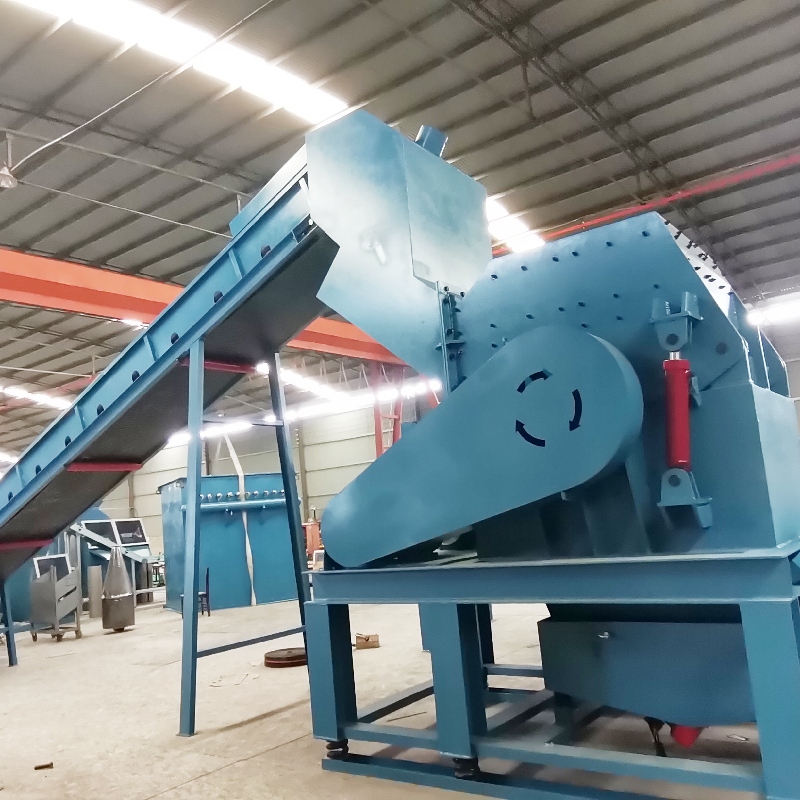

Nov . 04, 2024 07:31 Back to list
The Importance of Scrap Metal Processing Plants
In today’s rapidly evolving industrial landscape, the significance of scrap metal processing plants cannot be understated. These facilities play a crucial role in recycling materials, conserving natural resources, and reducing environmental impact. As urbanization and industrial activities increase, the demand for metals rises sharply, necessitating effective strategies for resource management. Scrap metal processing plants are at the forefront of these efforts, offering both economic and ecological benefits.
At their core, scrap metal processing plants serve as the backbone of the metal recycling industry. They collect, sort, and process various types of metal scraps, ranging from aluminum cans to outdated machinery. This process begins with the collection of scrap metal, which can come from a multitude of sources including construction sites, automotive repairs, and household waste. Once collected, the metal is sorted into different categories based on type and grade, a critical step that ensures the quality of the final recycled product.
The technology employed in these plants has advanced significantly over the years. With the introduction of automated sorting systems and advanced shredders, the efficiency of scrap metal processing has improved dramatically. These technologies not only streamline operations but also enhance the purity of recycled materials. The purified metals can then be melted down and reformed into new products, reducing the need for virgin metal extraction, which is often a resource-intensive process.

One of the key advantages of scrap metal processing is its positive environmental impact. By recycling metals, these plants contribute to the reduction of greenhouse gas emissions associated with mining and refining processes. According to the Environmental Protection Agency (EPA), recycling a ton of aluminum can save up to nine tons of bauxite ore from being mined. Additionally, recycling metals consumes significantly less energy compared to producing new metals. For instance, recycling steel can save up to 60% of the energy required for primary production, creating a far more sustainable manufacturing process.
Economically, scrap metal processing plants provide a myriad of benefits. They create jobs within the community, from collection and sorting to administration and management roles. The industry also supports local economies by providing cheap, recycled materials for manufacturers, which can lead to lower production costs and, subsequently, more affordable products for consumers. Moreover, as the push for sustainability grows, the demand for recycled metals is expected to increase, ensuring that scrap metal processing remains a vital sector for years to come.
In conclusion, scrap metal processing plants are essential for fostering a circular economy in which materials are reused rather than disposed of. By efficiently recycling scrap metals, these facilities help reduce reliance on finite natural resources, lower greenhouse gas emissions, and promote economic growth. As we continue to confront pressing environmental challenges, the role of scrap metal processing plants will only become more critical, highlighting the need for continued investment and development in this key industry. Embracing recycling not only benefits the planet but also paves the way for a more sustainable future, proving that waste can indeed be turned into valuable resources.
Latest news
Troubleshooting Common Eddy Separator Problems
NewsJul.04,2025
The Role of Metal Recycling Plants in Circular Economy
NewsJul.04,2025
The Impact of Recycling Line Pickers on Waste Management Costs
NewsJul.04,2025
Safety Features Every Metal Shredder Should Have
NewsJul.04,2025
How Industrial Shredders Improve Waste Management Systems
NewsJul.04,2025
How Cable Granulators Contribute to Sustainable Recycling
NewsJul.04,2025